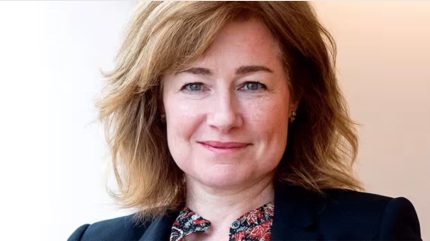
The art of negotiation has long been a source of fascination to Kathleen O’Connor. “It’s complex, emotional and personal,” she says. “To watch someone negotiate has always made me wonder, why did they offer that? Why don’t they ask this question?” Now, as Clinical Professor of Organisational Behaviour at London Business School, Kathleen gets to apply her research into effective negotiation and collaboration, teaching these skills through LBS’s Executive Education programmes, as well as working with corporate clients on other fresh ways of working. “I admit I especially enjoy teaching on our women’s programmes, and especially teaching negotiation sessions. women negotiation because ”With just a few tips and a bit of practice, women make terrific bargainers,” she explains. “Given how critical the skill is, not only for high-stakes deals but also for everyday communication and collaboration, seeing them master it is really satisfying.”
This desire to help women move into senior roles encouraged her to co-found the LBS Women in Leadership programme alongside Professor Herminia Ibarra. She is passionate about the customised, experiential course aimed at senior women as well as the online offering developed during the Covid pandemic, which targets more junior women looking to progress.
Kathleen says: “During the pandemic, a lot of people had time to rethink and consider what’s coming next. With an online programme, we can reach women everywhere. And the results are in; our programme alumnae believe the time with us transforms who they are, where they are going, and how quickly they will get there. Sharper negotiation skills are certainly part of their success.”
Kathleen’s interest in negotiation began with her undergraduate degree in industrial and labour relations from Cornell University. An internship with the United Auto Workers encouraged her to ask questions about the tactics both sides were using during contentious talks. This experience led her to a PhD in social and organisational psychology at the University of Illinois Urbana-Champaign where she continued to research on bargainers and their deals
After spending a few years on the faculty at Rice University and then in a visiting faculty role at the Kellogg Graduate School of Management at Northwestern University, Kathleen found herself back at Cornell, where she stayed for over 20 years. In 2012, Kathleen arrived at LBS for a sabbatical and never left. For several years, she was a visiting professor, commuting between upstate New York and London. After logging too many air miles, she joined the School full-time in 2018 as a clinical professor and took on the role of Faculty Director in Executive Education a few years later. These days her director role has her helping Exec Ed grow its business during what could mildly be called ‘challenging times.’ She also works closely with programme directors to shape programmes aimed at supporting some of the world’s leading businesses transform for what comes next.
Kathleen’s journey to LBS was an unusual one. Joining the School meant giving up a tenured position at Cornell; an atypical decision in academic circles. She explains: “A lot of colleagues did a double take when I made the move, but I’ve not regretted it. There are moments when I miss working with doctoral students on research projects. Yet, I bring that creativity to the classroom where I need to translate cutting-edge empirical research to executives who are looking for practical tools and tactics they can use Monday morning. Sharing the science and seeing it work is super rewarding.”
Kathleen credits her roles in Executive Education for becoming a better teacher, more sharply focused on the ‘so what’ of academic research. “From sustainability to generative AI, from geopolitical uncertainty to increasingly diverse workplaces, executives and managers are searching for tools and insights to help them navigate what’s next. What they need is out there, being produced in top business schools like LBS. Translating those insights to their contexts is a challenge that I relish.” And Kathleen has a set of teaching awards from the School that attest to students’ appreciation for her work.
As well as other scholars’ work, Kathleen brings to the classroom insights from her own research. How women navigate moments of decision and how this impacts their working lives has been an active question Kathleen has been investigating for several years now. Is change influenced by fear, courage or serendipity? “It’s about the trade-offs and decisions women make,” she replies. “I’m very interested in how change has affected them; whether they’re making changes in their life circumstances that they initiated or those that were brought to them. Those moments are interesting – having a child, returning to school, getting divorced, moving to a better job in another country.
What did you think about it? What did you do? What happened next? Change can be scary and often we resist it, choosing the ‘devil we know.’ The women I have interviewed are surprised by how happy they are having made a change. I ask what advice a woman would give to her younger self. It’s always about taking the action you’re afraid of.
LBS – location, location, location
It is not lost on Kathleen that her interest in women’s career decisions may not be a coincidence, given her own unusual career decisions. “Like so many dual-career families, we relocated because one of us got a tempting offer. In this case, it was an offer for my husband. We relocated from quiet upstate New York to London.That decision and others to follow were complicated and a little bit scary. Perhaps hearing other women’s stories helped me through the difficulty of adjusting to a new city, job, and school.”




